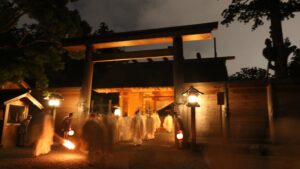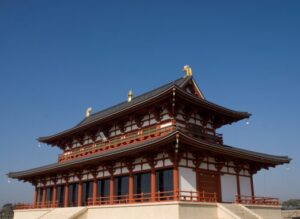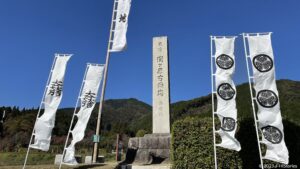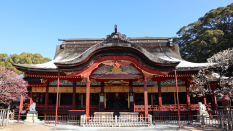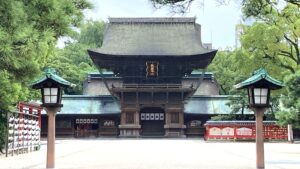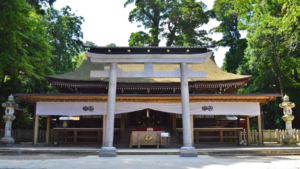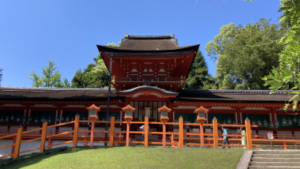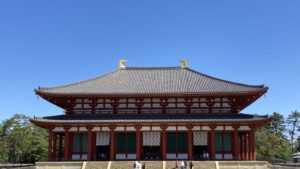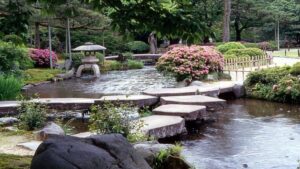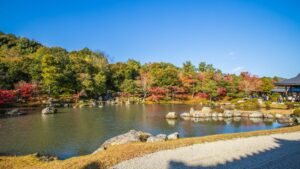Emperor Tenmu and the Jinshin War: The Origins of the Shikinen Sengu at Ise Jingu
Emperor Tenmu (?-686, 天武天皇), the 40th emperor of Japan, ascended the throne after winning the Jinshin War, the largest civil conflict in ancient Japanese history. He established the Shikinen Sengu system, the ritual rebuilding of Ise Jingu (Ise Grand Shrine), a tradition that has endured for over 1,300 years. After his death, his consort, Empress […]
Heijo-kyo Rises: Guided by Fujiwara Fuhito
Heijo-kyo, the capital of the Nara period (710–794), was relocated by imperial decree of the 43rd Reigning Empress Genmei (660-771, 元明天皇) in 710. Spanning an area similar to that of modern-day Nara City, it featured Suzakuouji Avenue, which ran straight from north to south, from the Daigokuden Palace through the Suzakumon Gate to the Rajomon Gate […]
The Battle of Sekigahara
On 21 October 1600 (15 September 1600 in the Keicho era), the Battle of Sekigahara, the largest battle in Japanese history, was fought mainly in the Sekigahara area. The Eastern Army, led by Tokugawa Ieyasu (1543-1616, 徳川家康), about 70,000 to 80,000 soldiers, some of whom were loyal to Toyotomi Hideyoshi (1537-1598, 豊臣秀吉), clashed with the […]
Dazaifu Tenmangu, Enshrines Sugawara Michizane as The God of Learning
Dazaifu Tenmangu Shrine enshrines Sugawara Michizane (845-903, 菅原道真), a renowned scholar who supported the 59th Emperor Uda (867-931, 宇多天皇) as a ‘Monjo-hakase’ (a scholar of the highest rank), offering his extensive knowledge and insight during the emperor’s reign. The shrine is the head of the 12,000 Tenmangu shrines across Japan. Sugawara Michizane is revered as […]
Hakozakigu Shrine, Brings Victory and Good Luck
Hakozakigu Shrine in Fukuoka prefecture, Brings Victory and Good Luck
Kashima Jingu Shrine Enshrines the Diety of War, Takemikazuchi
Kashima Jingu Shrine in Ibaraki prefecture Enshrines the Diety of War, Takemikazuchi
Kasugataisha: A 1,300-Year-Old Sacred Shrine in Nara
Kasgataisha Shrine in Nara has a 1300-year-old history. Feeling the spituality from the sacred deer, mountains, and forests, the all are the divinity of Kasuga's God.
Kohfukuji, 1,300 Years of Fujiwara Clan's Temple and Its Attractions
Kohfukuji Temple in the heart of Nara is a treasure trove of over 30 National Treasures, including the majestic Chukondo Hall, the five-story pagoda, as the influential Fujiwara clan who had stood at the center of power for over 1,300 years. Don't miss out on exploring the beginning of Fujiwara clan's prosperity starting Kamatari and Fuhito.
Kenrokuen, a Scenic Garden, the Maeda Clan's Survival Strategy
Kenrokuen garden in Kanazawa is a symbol of Maeda Toshiie, Toshinaga, and Toshitsune, the great lords who protected Kaga's one million koku domain against the Tokugawa Shogunate. Thier strategy was brilliant.
Tenryuji Temple, shogun Ashikaga Takauji Mourned Emperor Go-Daigo
Located at Arashiyama, Shogun Ashikaga Takauji built Tenryuji Temple to mourn Emperor Go-Daigo. Sogen pond garden and Could Dragon painting are specutacler.

